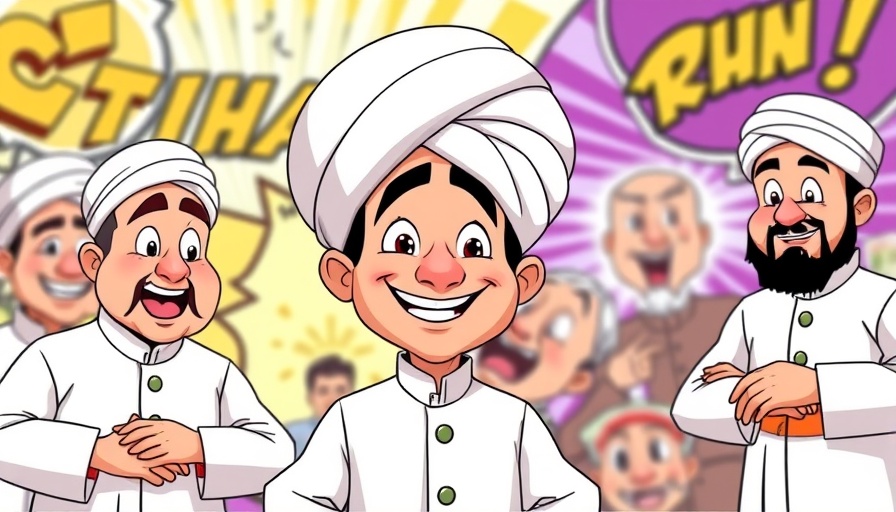
Understanding the Historical Context of Muhammad
In the discourse surrounding Muhammad and Islamic history, it's vital to establish a foundational understanding of the man behind the faith. Muhammad, regarded as the final prophet in Islam, was born in Mecca in 570 CE. His life, marked by profound spiritual experiences and engagements with broader sociopolitical dynamics, is often examined through various lenses. The events of his life, such as revelations and the subsequent establishment of a dedicated following, continue to generate diverse interpretations across cultural and religious landscapes. By recognizing the historical context, we can achieve a deeper understanding of why Muhammad holds such significance for Muslims worldwide, and why discussions about him can evoke strong sentiments.
In the video 'What Did They Do To Muhammad? (LIVE with Raymond Ibrahim)', the discussion dives into key insights about Muhammad and how they shape perceptions today.
Why Conversations About Muhammad Matter Today
In a world where religious tensions sometimes ignite conflict, discussing figures like Muhammad can serve as an important bridge for dialogue. Understanding different perspectives fosters empathy, especially for believers seeking to strengthen their faith and skeptics open to learning. The portrayal of Muhammad in contemporary narratives often gets misrepresented or oversimplified, alienating non-Muslims while creating divisions. Addressing these conversations is crucial, as they enable believers and non-believers alike to adopt a more nuanced understanding of faith practices and cultural identities.
Responding to Misconceptions about Muhammad
A multitude of misconceptions surround Muhammad—ranging from his teachings to the interpretations of his life events. Many people perceive Muhammad solely through the lens of extremist groups, neglecting the broader context of his teachings on compassion, justice, and morality. By examining the Quran alongside historical commentary, we can see a more balanced picture. This approach is particularly valuable for youth and college students, who often seek clarity in a media-saturated age. Providing clear theological insights can combat the myths propagated through viral content and superficial conversations.
Tools for Engaging in Constructive Dialogue
Believers and seekers alike can benefit from tools that facilitate respectful and informed discussions. One vital approach is using active listening, which allows for genuine understanding rather than reactive disputes. Engaging with material such as books, documentaries, and lectures that present various points of view on Muhammad can also expand our understanding. Such resources not only advocate for critical thinking but also encourage a spirit of inquiry among peers and community members.
Exploring Diverse Perspectives in the Context of Muhammad
Including diverse voices in discussions about Muhammad enriches the dialogue. Perspectives from historians, theologians, and laypeople all provide unique insights that allow the community to invite more voices into the conversation. By examining how various denominations of Christianity and different religious figures address Islam and Muhammad, we can develop a broader vision for interfaith discussions. Educators and church leaders can play pivotal roles in promoting a constructive dialogue about not just Muhammad, but religious tolerance in general.
Educational Frameworks for Parents and Young Minds
As parents and educators, crafting educational narratives around figures like Muhammad is crucial for developing informed youths. It’s essential to create a curriculum that not only educates about religious figures but also teaches critical analysis and respectful disagreement. By including age-appropriate materials that provide clear historical perspectives, educators can nurture a generation that values diversity and seeks to understand the 'other' rather than categorize them through polarizing judgments.
Conclusion: Navigating Faith and Understanding
Engaging with discussions on Muhammad can be complex and challenging, yet they are necessary for a well-rounded understanding of faith and history. By fostering environments of inquiry and respectful dialogue, we can bridge gaps of misunderstanding and promote a more harmonious coexistence in a diverse world. This journey toward understanding also allows believers to strengthen their faith while inviting others to explore the rich narratives embedded in various belief systems.
 Add Row
Add Row  Add
Add 








Write A Comment